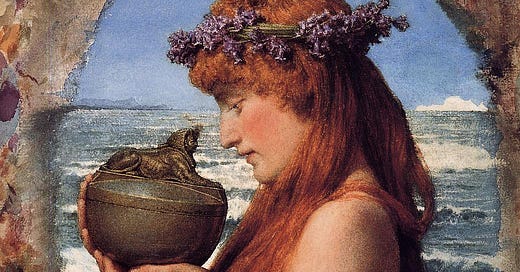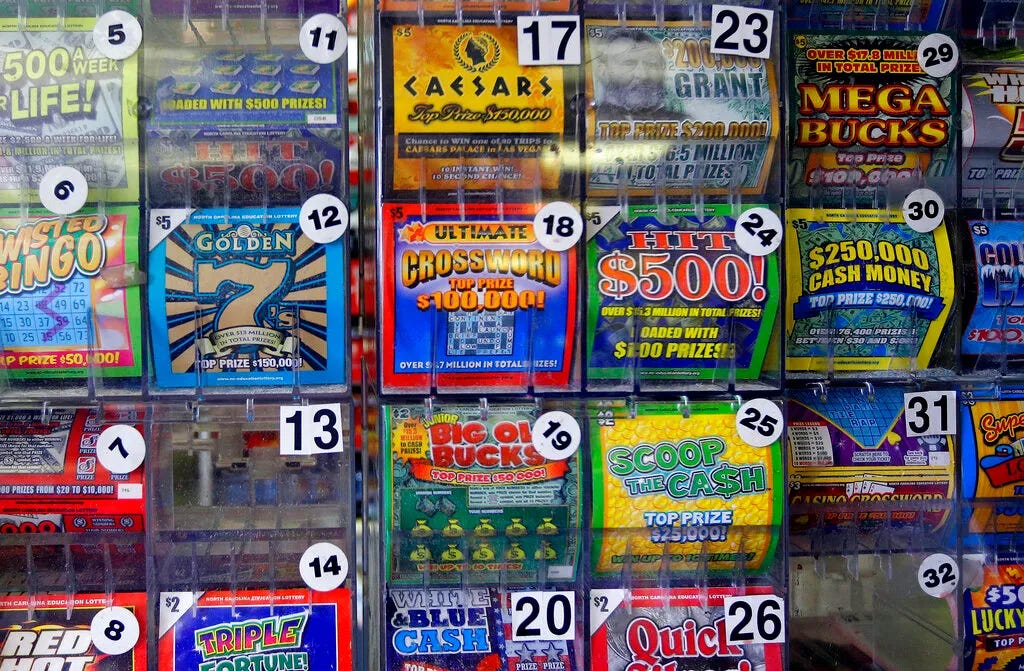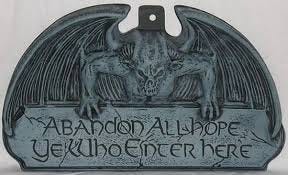When I worked in advertising—my own personal Babylonian captivity—I was, mercifully, on the creative side. Those on the Account Service side, the buttoned-up men and women who had MBAs, knew how Excel and PowerPoint worked, and went out to dinner with clients considered the Creative Department … well, basically Adult Day Care.
True, there were a lot of toys in the creative wing: mini-basketball nets, Nerf guns, dart boards. All good ideas come from play. I have yet to see a good idea pop off an Excel spread sheet.
As I moved up the ladder in the biz, I had to spend time with clients. This meant prepping for meetings where I heard the phrase “Hope is not a strategy!” many, many times.
ME (holding up comp ad with catchy, funny headline):
I really think this will work.
ACCOUNT SERVICE PERSON:
We hate it.
ME:
Why? It’s funny, it’s on message, and it’s optimistic.
ACCOUNT SERVICE PERSON:
Did you say optimistic, as in … hope?
ME:
Well, I didn’t actually say hope, but …
ACCOUNT SERVICE PERSON:
Hope is not a strategy.
[Pause]
ACCOUNT SERVICE:
And the logo is too small.
Contrary to popular belief, Pandora never opened a “box.” It was a jar. But when she did all kinds of weird stuff came flying out. Sort of like the word salad that flies out of the mouth of a certain Orange Person we know: greed, jealousy, pain, grievance, disease, carnage, Big Mac breath, sharks, Hannibal Lecter.
Basically, the Pandora story is a riff on the Garden of Eden mythology. Eat an apple, bad things happen. Open a box, bad things happen. Every culture has a mythology that accounts (wrongly) for bad things.
The interesting part of the Pandora story is this:
There was one thing left in the box: Hope.
Unfortunately, this is not as simple as we would—or at least I would—like to think. (Is anything ever simple?)
The hope in the bottom of the jar is ambiguous.
Frederich Nietzsche, the German mustache, I mean philosopher, said this:
Hope in reality is the worst of all evils because it prolongs the torments of man.
Yowza! That’s harsh.
Now before we go dissing Nietzsche for being a Teutonic worry-wart and kill-joy, I have to say he’s got a point.
I think of Nietzsche every time I’m driving the Pike to Boston and I stop at the Ludlow Rest Stop. Invariably, as I am waiting in line to pay for my coffee, there is always someone buying lottery tickets. Always. This is not an attempt to pass judgment, but: the person looks like they should not be spending money on lottery tickets, that the money would be better spent on medical or dental care.
Fine. Free will. Everyone to their own.
There are, at last count, more than Avagadro’s number of kinds of lottery tickets. (For those lucky few who slept through chemistry class, that number is: 6.023 X 1023, or, in layman’s terms, a lot.)
After a considerable time spent choosing scratch, itch, win-all, money-for-life, etc. tickets, I’ve watched people gather up their tickets and turn over as much as $300 IN CASH to the cashier.
300 BUCKS CASH ON THE BARRELHEAD.
So, Nietzsche is right: this kind of hope prolongs torment in a life that has, most probably, seen its share of pain. That is $300 bucks right out the window.
And, second, when a society’s #1 strategy for getting out of poverty is the lottery, that is a very sick society.
But there is another way of viewing hope.
As someone who has dealt with clinical depression, I know this in my bones: the first thing to disappear when life turns monochrome, when the black dog of depression comes in your back door, is hope. You can’t conjure it up, you can’t force it up, you cannot, absolutely, manifest it. All you can do is wait.
And when hope disappears, the future disappears. Life becomes a day-to-day slog in which the main goal is getting from one end of the day to the next. Life without hope is hell. It is no coincidence that, in the Inferno, Dante put a sign over the Dates of Hell:
Into this humid, scorched-earth heat of summer, we have just had a bracing, fresh breeze of hope, humanized and personified by Kamala Harris and Tim Walz. It is a heady thing and it is absolutely to be enjoyed.
But make no mistake. We are in a liminal time, a transition. And I can guarantee that, even as I write, battery acid (and worse) is being poured into the MAGA flamethrowers.
So, this early, easy hope has to give way to hard hope. (I’ll explain that it a minute.)
But a digression:
I find it hard to believe that there is a more execrable human being on the planet than Stephen Miller. Unlike Trump, he doesn’t spew word salad. He spews sulfur. I saw him on TV last night.
His job is to destroy hope. He will scream and rant and lie to abscond with the ring of power.
Against that, our new-found hope is not a strategy.
But hard hope is. Hard hope incorporates doing the work, donating the money, showing up when necessary. Not just imagining a better future. Not just wafting along on the rhetoric of hope, but doing something about it.
Since I have a book coming out in a couple of weeks, I’m going to take the liberty of quoting myself:
There is the easy hope of platitudes and miracles, the hitting-the-lottery hope that shoots dopamine into the brain and temporarily wards off the existential fear that courses under the routine of daily life. And then there is hard hope, when you cannot imagine the outcome, when you cannot see over the horizon, when failure is very much a possibility. Hard hope takes a backbone of iron.
Honest to God
Again, back to the depression analogy, a couple of good days doesn’t mean that it’s disappeared. The black dog is sneaky, knows all the hidden doorways into the psyche. But three or four good days, a week, a month and you have the power to kick the Black Dog’s butt.
You’re free, once again.
And hard hope can do that.
Every once and a while, the Muse flies into the room and drops a melody on the keyboard. I would love to say I labored over this, but that would be a lie. Doing the art work took longer than writing the piece. I hope it gives you a bit of a lift.
And if you have Spotify (still a mystery to many, I know), you can find the whole piece here:
Thank you for reading! Apologies in advance for typos. (I am a dyslexic proofreader!)
If you “like” (heart) this post or—even better—comment, it is a big help. The post gains more visibility.
And if you enjoyed this piece, please consider sharing it with a friend:












I'm one who has often said, "hope is a beggar," but I like your article.
I'm from Cambridge, and I've spent some portion of my life caught in traffic on the Pike, too.
John, your exploration of hope as a double-edged sword really resonated with me. It's so true that hope can be a lifeline in dark times, but it can also become a crutch or a source of delusion if not tempered with realism.
Your example of the lottery tickets at the rest stop is a perfect illustration of how hope, when misplaced or overblown, can actually prolong suffering. But then you beautifully pivot to the idea of "hard hope" – the kind that requires action, resilience, and facing the possibility of failure head-on. This is the hope that fuels real change, both in our personal lives and in the world around us. It's not about wishful thinking, but about rolling up our sleeves and doing the work, even when the outcome is uncertain. Thank you for sharing such a great article.